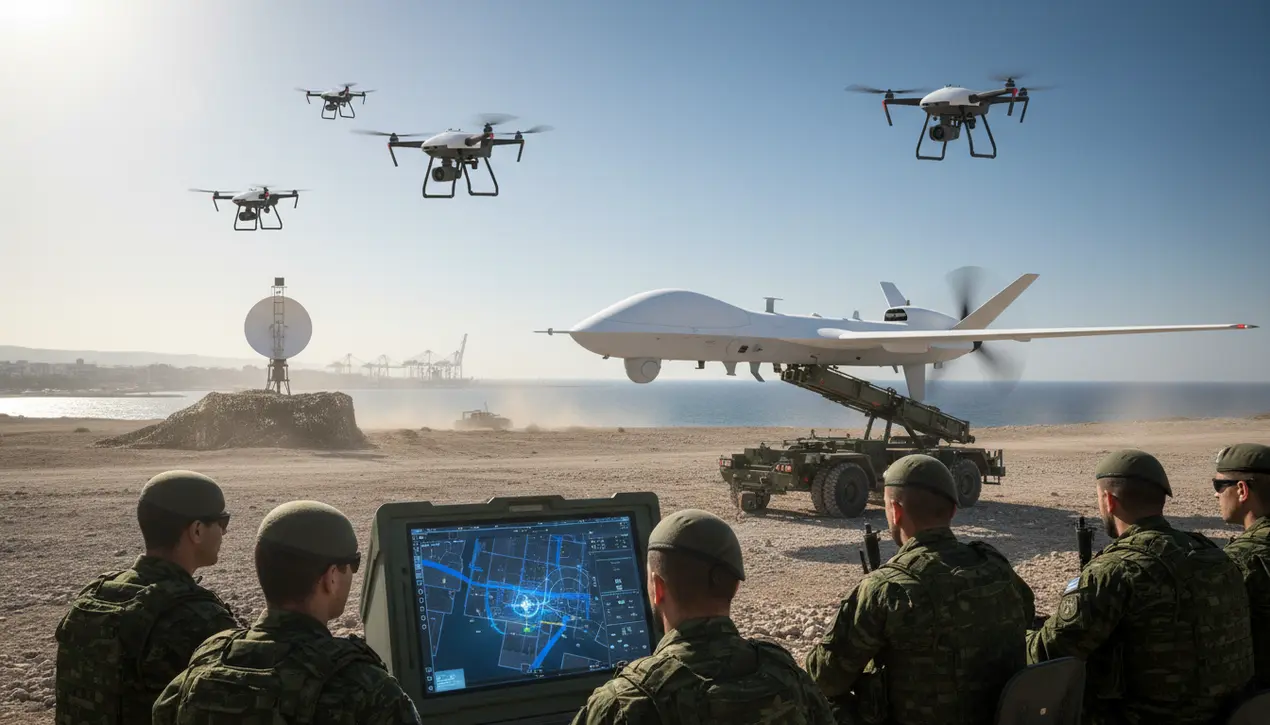
Politicsconflict & defenseMilitary Operations
Greece Unveils Indigenous Drone Fleet in Strategic Military Exercise
RO
Robert Hayes
2 hours ago7 min read
In a landmark demonstration of its growing defense industry, Greece has revealed a full spectrum of domestically produced unmanned aerial vehicles and advanced electronic warfare systems during a major live-fire drill near the strategic port of Alexandroupolis. The event, attended by high-ranking defense officials and international allies, represents a decisive shift for a nation historically reliant on foreign arms imports, underscoring its commitment to strategic self-reliance in a volatile geopolitical landscape.The showcased systems formed a complete operational ecosystem, ranging from tactical reconnaissance quadcopters delivering real-time intelligence to long-range, armed combat drones capable of executing precision strikes—technology that has proven pivotal in conflicts from Nagorno-Karabakh to Ukraine. The accompanying counter-drone defenses, which integrated jamming, spoofing, and kinetic interception capabilities, highlighted a sophisticated approach to neutralizing modern asymmetric threats where inexpensive commercial drones can challenge high-value military assets.This strategic unveiling is deeply intertwined with regional tensions. Alexandroupolis has evolved into a crucial NATO hub, hosting rotating U.S. forces and serving as a key energy gateway, its importance amplified by ongoing disputes with Turkey over Aegean and Eastern Mediterranean maritime zones.For Greece, this indigenous drone program functions as both a defensive shield and a geopolitical statement—a direct counter to Turkey's battle-proven drone arsenal, including the renowned Bayraktar TB2, and a declaration of Greece's resolve to maintain technological parity in its own neighborhood. Analysts view this initiative as part of a wider European trend toward military modernization and supply chain independence, accelerated by the war in Ukraine, which revealed the risks of dependency on extra-EU defense suppliers.While the financial investment is significant, especially considering Greece's recent economic challenges, the political determination appears unwavering. As one retired Hellenic Army general privately remarked, 'This transcends procurement; it's about mastering the underlying technology, controlling operational data, and setting our own pace.It's the distinction between wielding a borrowed weapon and crafting your own. ' The implications are far-reaching: it enhances Greece's standing within NATO, fosters deeper defense ties with nations like France and Italy, and could establish a new export sector for Greek defense technology.Yet, it also carries the risk of accelerating a regional arms race into a more automated and technologically complex domain, where errors could unfold at digital speeds. The Alexandroupolis exercises were not merely a training event but a meticulously staged debut of a new, homegrown cornerstone of Greek defense policy—a clear message that in the high-stakes arena of Eastern Mediterranean security, Athens is decisively moving to the forefront.
#featured
#Greece
#military exercise
#drones
#domestic technology
#defense industry
#Alexandroupolis
Stay Informed. Act Smarter.
Get weekly highlights, major headlines, and expert insights — then put your knowledge to work in our live prediction markets.
Comments
Loading comments...
© 2025 Outpoll Service LTD. All rights reserved.